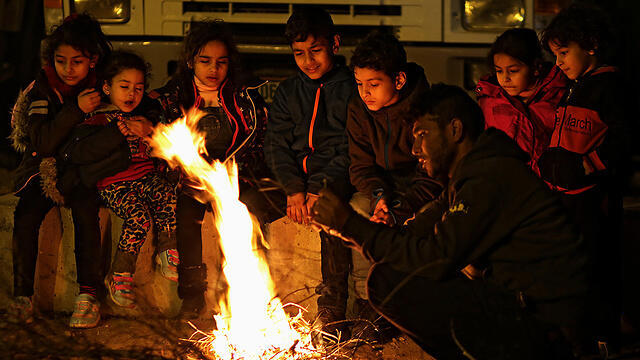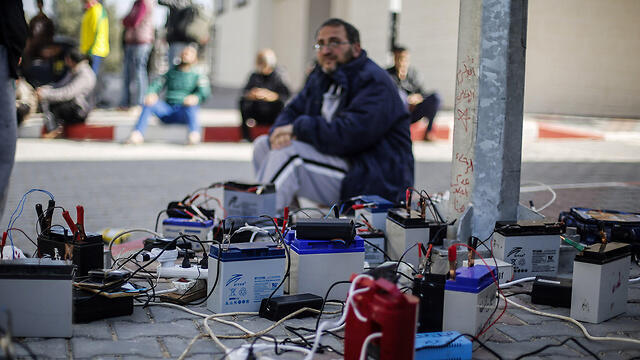Getting your Trinity Audio player ready...
Egypt stopped allowing diesel shipments to enter the Gaza Strip Wednesday, causing the strip's power station to cease operations. As a result, residents have been limited to three hours of electricity a day.
A meeting was thus called by Palestinian Prime Minister Rami Hamdallah in light of the dire situation ,attended by the United Nations (UN) Envoy to the Mideast Nickolay Mladenov and Coordinator of Government Activities in the Territories (COGAT) Major General Yoav Mordechai.
Overview of the situation in Gaza
Palestinians and the UN Envoy expressed their concern for the people of Gaza specifically in the matters of energy and health, with severe shortages of medications and medical instruments.
Mladenov asked the PA representatives to ease the situation by removing the sanctions they imposed on Gaza due to the ongoing feud between the two Palestinian factions.
4 View gallery


Palestinian PM Hamdallah called a meeting with Israeli and UN officials to discuss the situation in Gaza
(צילום: AP)
Hamdallah asked the Israeli delegation to allow the movement of Palestinians between the West Bank and the Gaza Strip.
Israel urged that a solution be found for its citizens and bodies of IDF soldiers being held in Gaza.
4 View gallery


COGAT Mordechai said resolving the Gaza crisis depended on the return of Israeli POWs and MIAs
(צילום: דובר צה"ל)
Lately, security officials have been warning that the worsening humanitarian crisis in Gaza can lead to a military conflict with Hamas, or a situation in which Israel will be forced to take responsibility for civil infrastructures in Gaza in order to prevent a total collapse.
The sides agreed on the need to maintain constant supervision of what goes into the strip to ensure that Hamas does not take advantage of the situation for its own interests.
Mladenov said that he held discussions regarding sources of finance from the Middle East Quartet and European Union in order to ease the crisis in Gaza.
Lieberman: Situation bad, but no crisis
Defense Minister Avigdor Lieberman said at the beginning of the month that, “The situation in Gaza is tough and must be dealt with but there is no humanitarian crisis.” He added that COGAT was authorized to say whether there was a crisis.
The defense minister accused Hamas of spending $260 million in 2017 for rockets and digging tunnels—$100 million from Iran and the rest from taxes levied on Gaza’s population and other donations. “Hamas was not willing to devote even one shekel to water, electricity, health or medical infrastructure in the Gaza Strip,” Lieberman accused.






